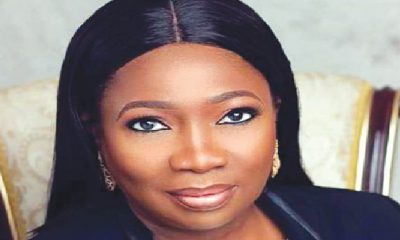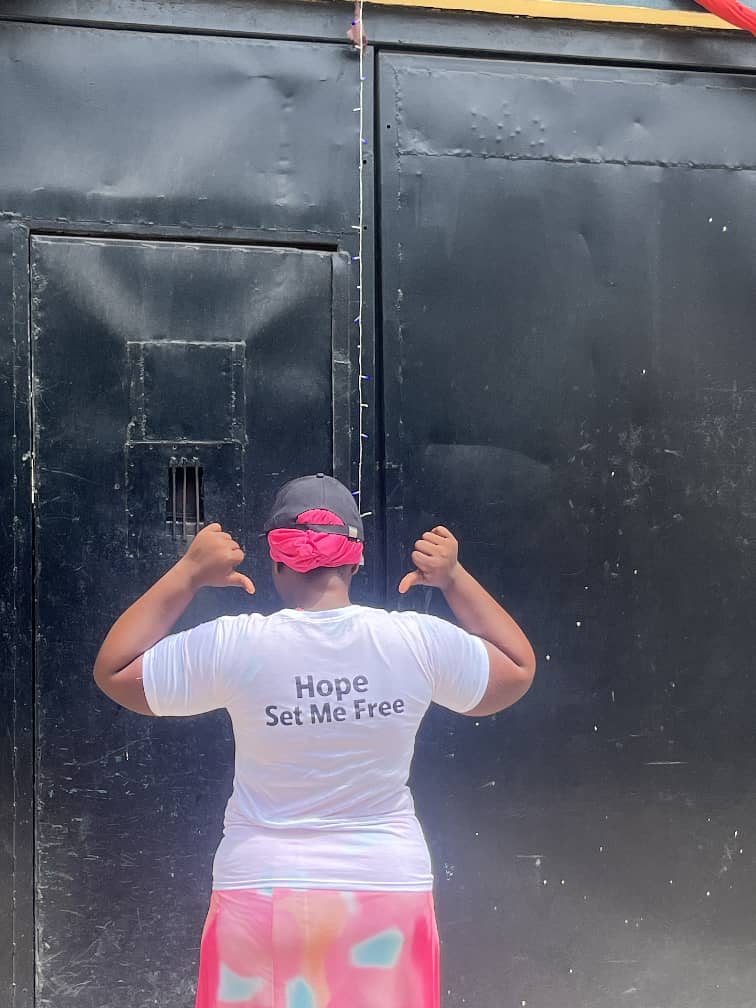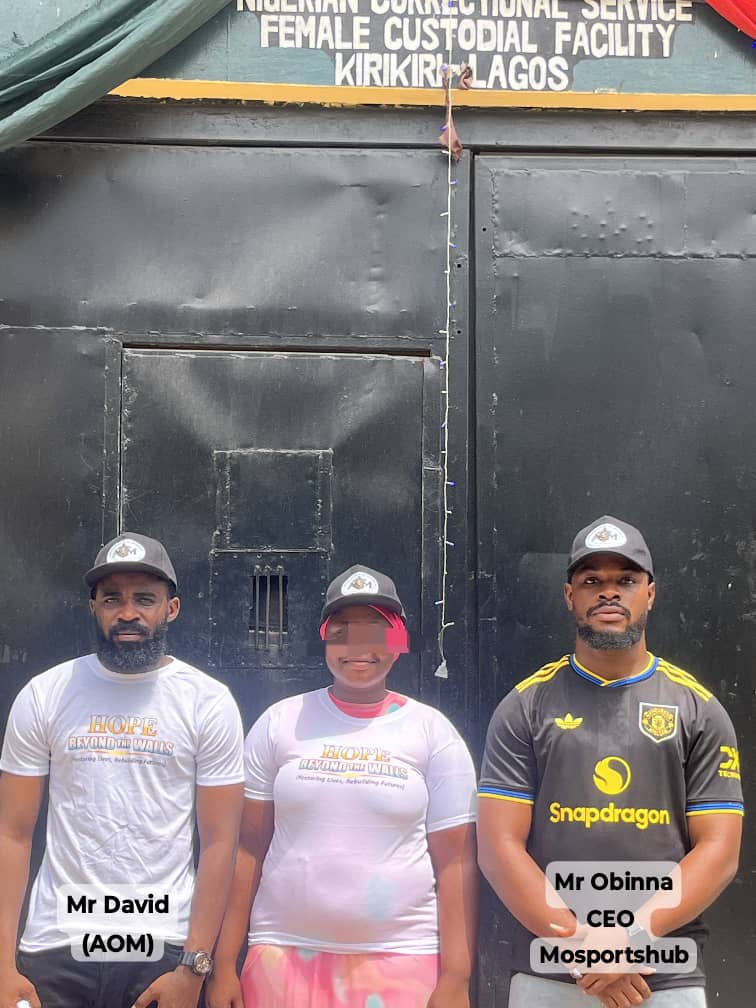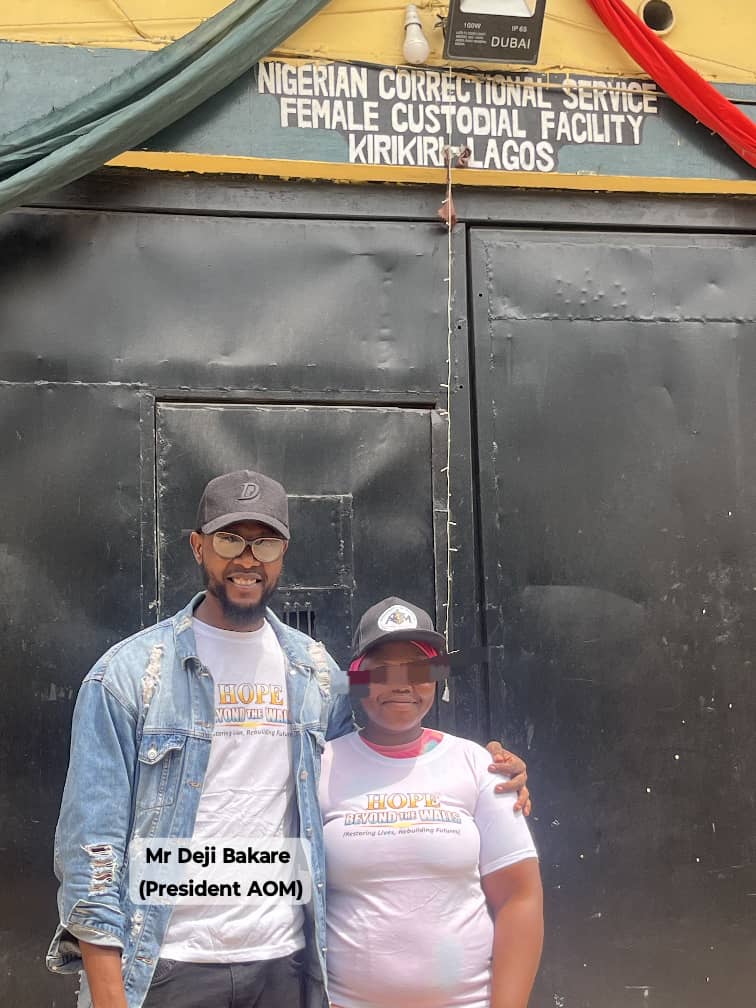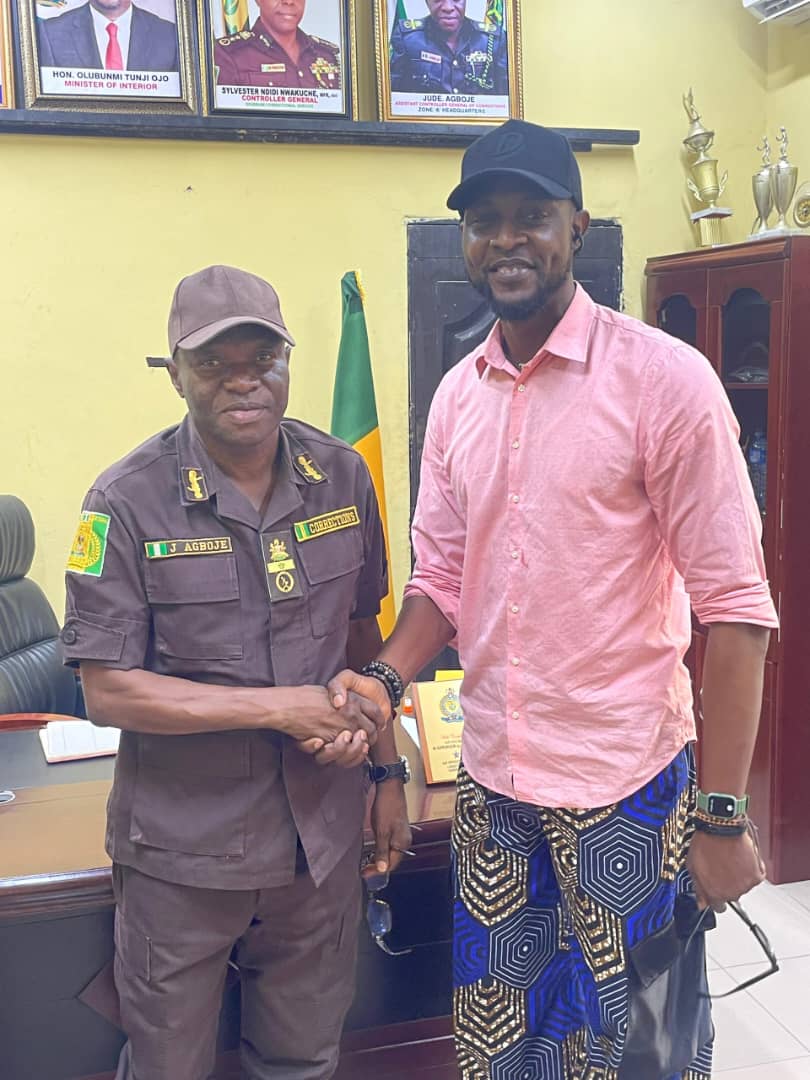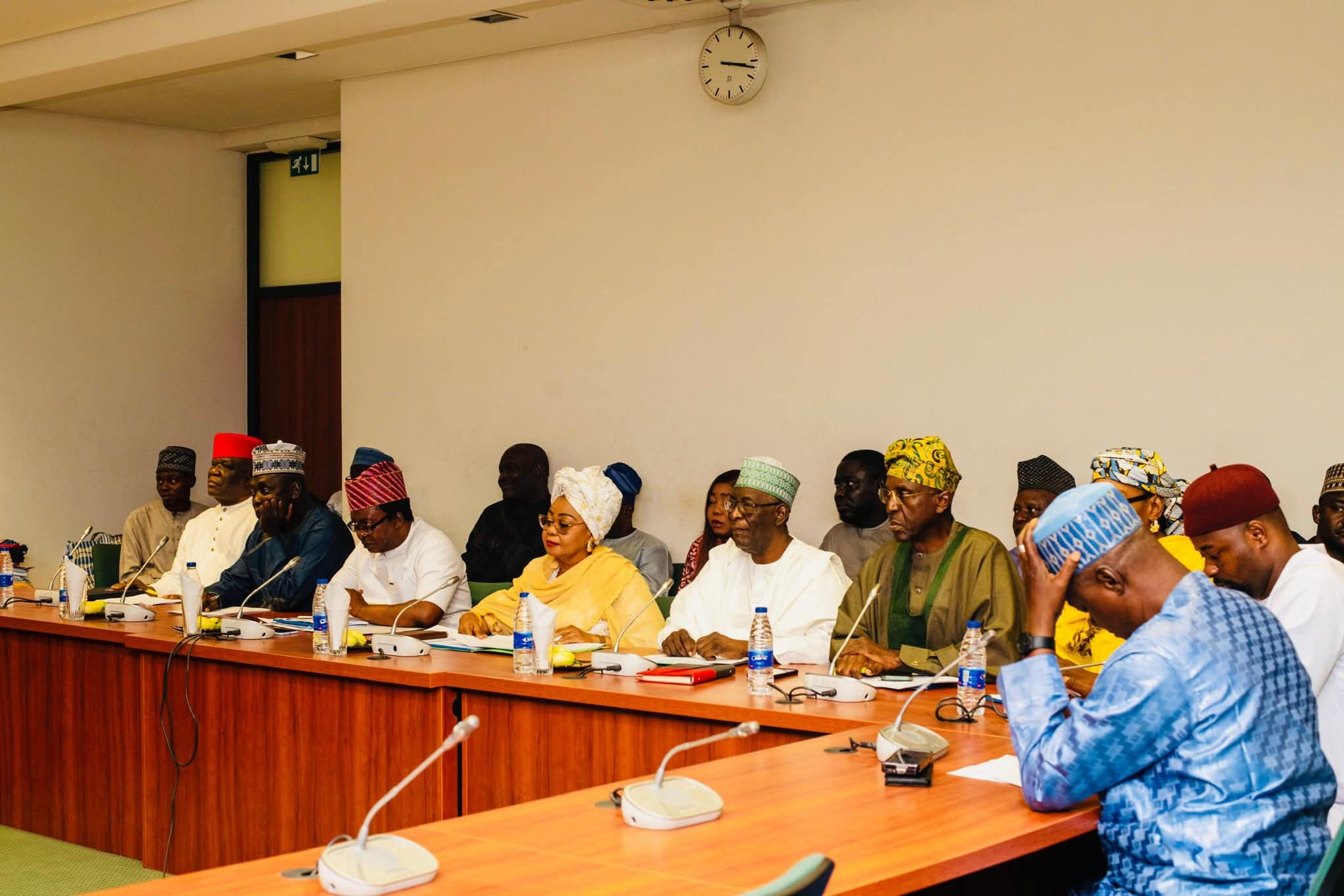society
Father threatens daughter, family for marrying Christian, converting to Christianity

Father threatens daughter, family for marrying Christian, converting to Christianity.
It is surprising that some people are still tenaciously holding on to their extremist religious belief despite the changing time.Not even the popular Yoruba adage that says, “Father’s choice of religious practice may not influence their children’s way to salvation”,could change their minds.
The above narration best explained the case of popular Muslim cleric in ibadan who allegedly has decided to make life difficult for his daughter and family for exercising her right to change her religion.
Mrs Atewogbola Adeola Ganiyat, a 39 year-old woman who hails from a Muslim family in Ibadan, Oyo State in Southwest,Nigeria, is one of the few among those who suffering religious slavery in the country that are bold enough to speak out and dare their parents regarding their religious presence.
Mrs Atewogbola is, however, currently paying dearly for her courage in marrying a Christian and converting from Islam to Christianity against her father’s wish.
The Mother of one (David Akorede, 2)is married to Mr Michael Adeyemi Atewogbola, a 43 years old devoted Christian she met at a crusade in Ibadan.
It was, however, reported that her father,who is a well known Muslim leader, vehemently opposed her relationship with a Christian husband.
Mrs Atewogbola spoke with Sahara newspaper during her sojourn in Ota, a practice which she and her family have adopted not only as a devoted Christian family but also as a way of moving around to avoid her father and his agent that are allegedly tracking them.
She spoke with our reporter from her hideout with husband and two children after their home was allegedly attacked by people suspected to be members of an Islamic group which she said is working for our father.
The trouble woman, who said that she had been a practicing Muslim from childhood, added that her father who is the Baba Adinni and chieftain of Idi-Ape central mosque in ibadan, has declared war on her and her family for effrontery in marry a Christian and converting from her family religion (Islam) to Christianity.
“I grew up knowing only Islam as my way of life because my family is a Muslim family. It was our way of life and the only thing that we know, so, there is no way I could have known what was happening in other religion, especially Christianity which my father detests.
“It is always a constant warning to me and other children that we cannot under any circumstances be married to anyone except someone that is a Muslim”.
Mrs Atewogbola, who said that she was a member of the women’s wing of the Alasalatu Islamiyah of Nigeria, Ibadan chapter, and secretary of the group, said that things took another turn in 2012 when she add a strange encounter.
“But everything changed through devine intervention in 2012. It was around June of that year while I was in a trance in my room, I saw the image of a man in white robe who told me in plain Arabic language that I should follow him”, I was told to abandon my old faith and embrace Christianity. The situation was very confusing and I simply dismissed as nothing after I regaining my consciousness.But the same thing occurred in the night and this time, the communication was in my Yoruba language. In a clear voice, I was told Jesus is the way,the truth and the life”, she recalled.
According to her, it was unthinkable for her to even contemplate going to church at that time as a result, she had to live with the feeling for a long time until she had a problem getting husband.
She said that all her attempt to marry a Muslim man proved abortive as all her relationship with Muslim men ended abruptly and afterwards had an encounter with a pastor who told her to seek for a husband in a church.
I later had an encounter with a pastor I have never met in my life who told me I can only get the husband of my desire in a Church.
After the encounter, I started having a change of of heart because I needed a husband desperately at that time. I started attending church secretly for Bible study, it was this that changed my perception which was based on the indoctrination that we were given from childhood about Christianity. ” The religion is all about love, sharing, compassion, forgiveness and devotion”, Mrs Atewogbola said.
She stated that she met her husband, Mr Michael Adeyemi Atewogbola at a crusade and later married him after she secretly embrace Christianity.
” I actually met my husband at a crusade. We just met and got talking and eventually married but not without serious disagreement. As expected, my father vehemently opposed the unio.It was while we were preparing for the wedding that I was mustered the strength to reveal to my father and other family members that my husband is not just a Christian, but I have also converted to his religion as well.”
She explained further that, “They were devastated and asked me to call off the wedding but I stood my ground.
However, the eldest man in our family which everybody looked up to because of his age and influence, that intervain and prevailed on my father to allow the wedding to go on.
Although, he reluctantly approved of the union, none of my family members attended the wedding” she added.
The Mother of David Atewogbola started that her problems were compounded in 2016, when her father wrote to her that he had presented her for the position of a woman leader in a Mosque in Ibadan.
” Despite knowing that I was no longer a Muslim, my father called me in 2016 that to take up an Islamic title of Iya Adinni of Ansar-ul-Deen mosque in ibadan, on the ground that it was zoned to our family and he has nominated me for the position.
My refusal brought so much threat to my family and since then, we have been running from one place to another for crusades as a way of getting away from my father because we are constantly under monitoring”.she lamented.
” My husband was attacked twice in our area in Ibadan by some members of Muslim Society of Nigeria, an organization that my father belongs to. He was also attacked in Sango Ota in Ogun state where we were living after running away from Ibadan due to attacks and incessant threats from my father and his group. He’s actually one of their patrons “.
A distraught Mr. Atewogbola, also speaking on his family’s recent ordeal, said that his wife has been able to capture all that they have been facing in the hands of her father and added that their lives are no longer safe anywhere.
“When we thought we are in Lagos and far away from these people, members of this organization tracked us down to Ikorodu, where we were having a crusade as they hid in bid to attack us. We were actually in a crusade growhe they attacked the house we were staying in Ota,.
The place was vandalized and our Rio car was set ablaze before our neighbor call us us on getting there they attacked my husband again. We only managed to escape again with the help of some Christian and members of the local vigilante group.
He said his plan was to take his family to a safer place far away from where his wife’s father, family or any of their loyalists will be able to reach them.
society
HOPE BEYOND THE WALLS 2026: ASSOCIATION OF MODELS SUCCESSFULLY SECURES RELEASE OF AN INMATE, CALLS FOR CONTINUED SUPPORT
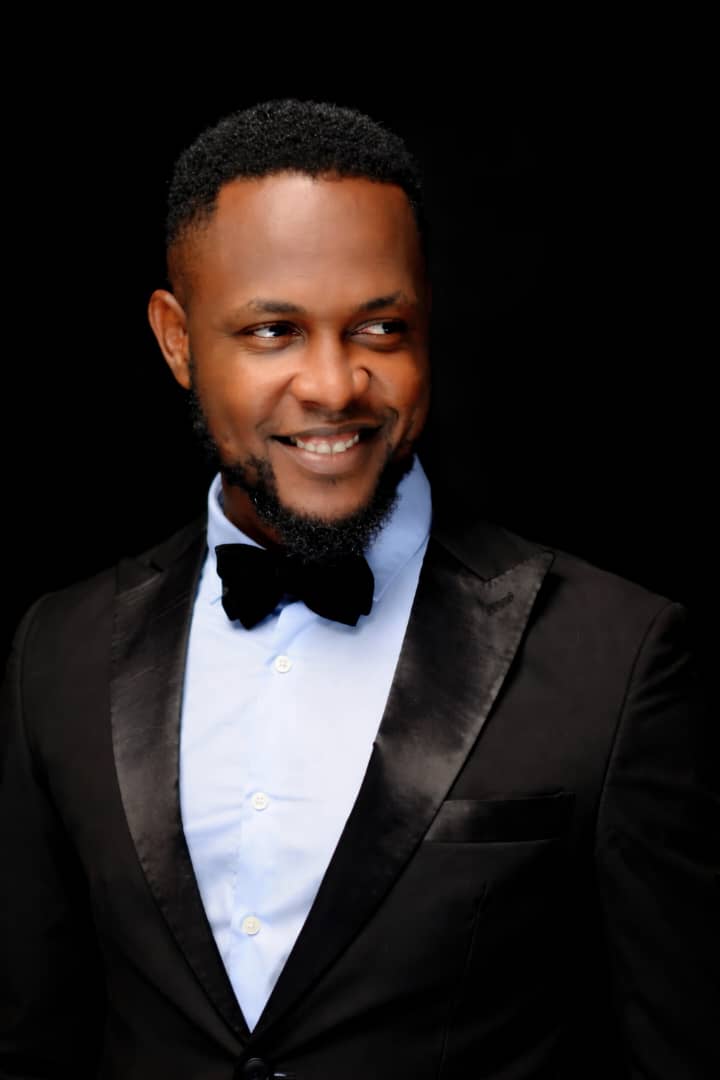
HOPE BEYOND THE WALLS 2026: ASSOCIATION OF MODELS SUCCESSFULLY SECURES RELEASE OF AN INMATE, CALLS FOR CONTINUED SUPPORT
The Association of Models (AOMNGO) proudly announces the successful completion of the first edition of Hope Beyond the Walls 2026, a humanitarian initiative dedicated to restoring hope and freedom to deserving inmates.
Despite enormous challenges, financial pressure, emotional strain, and operational stress, the organization remained committed to its mission. Through perseverance, faith, and collective support, one inmate has successfully regained freedom a powerful reminder that hope is stronger than circumstance.
This milestone did not come easily.
Behind the scenes were weeks of coordination, advocacy, fundraising, documentation, and intense engagement. There were moments of uncertainty, but the determination to give someone a second chance kept the vision alive.
Today, the Association of Models gives heartfelt appreciation to all partners and sponsors, both locally and internationally, who stood with us mentally, financially, morally, and physically.
Special Recognition and Appreciation To:
Correctional Service Zonal Headquarters Zone A Ikoyi
Esan Dele
Ololade Bakare
Ify
Kweme
Taiwo & Kehinde Solagbade
Segun
Mr David Olayiwola
Mr David Alabi
PPF Zion International
OlasGlam International
Razor
Mr Obinna
Mr Dele Bakare (VOB International)
Tawio Bakare
Kehinde Bakare
Hannah Bakare
Mrs Doyin Adeyemi
Shade Daniel
Mr Seyi United States
Toxan Global Enterprises Prison
Adeleke Otejo
Favour
Yetty Mama
Loko Tobi Jeannette
MOSES OLUWATOSIN OKIKIADE
Moses Okikiade
(Provenience Enterprise)
We also acknowledge the numerous businesses and private supporters whose names may not be individually mentioned but whose contributions were instrumental in achieving this success.
Your generosity made freedom possible.
A CALL TO ACTION
Hope Beyond the Walls is not a one-time event. It is a movement.
There are still many deserving inmates waiting for a second chance individuals who simply need financial assistance, legal support, and advocacy to reunite with their families and rebuild their lives.
The Association of Models is therefore calling on:
Corporate organizations
Local and international sponsors
Philanthropists
Faith-based organizations
Community leaders
Individuals with a heart for impact
to partner with us.
Our vision is clear:
To secure the release of inmates regularly monthly, quarterly, or during special intervention periods through structured support and transparent collaboration.
HOW TO SUPPORT
Interested partners and supporters can reach out via
Social Media: Official Handles Hope In Motion
Donations and sponsorship inquiries are welcome.
Together, we can turn difficult stories into testimonies of restoration.
ABOUT AOMNGO
The Association of Models (AOMNGO) is a humanitarian driven organization committed to advocacy, empowerment, and social impact. Through projects like Hope Beyond the Walls, the organization works tirelessly to restore dignity and create opportunities for individuals seeking a second chance.
“When we come together, walls fall and hope rises.”
For media interviews, partnerships, and sponsorship discussions, please contact the Association of Models directly.
society
SENATOR ADEOLA YAYI REGISTERS 4000 JAMB CANDIDATES
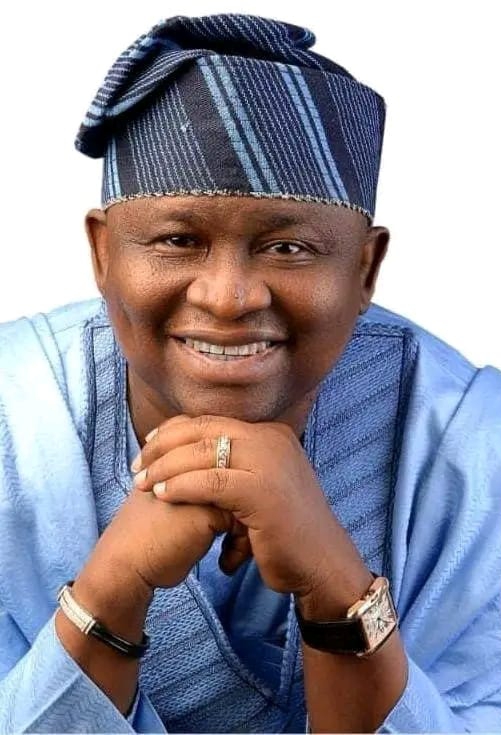
SENATOR ADEOLA YAYI REGISTERS 4000 JAMB CANDIDATES
In continuation of his educational support initiatives and following established tradition, Senator Solomon Adeola (APC,Ogun West) has successfully paid for and enrolled 4000 indigent students for the 2026 Joint Admission Matriculation Board(JAMB) examination.
According to a release e-signed and made available to members of the League of Yewa-Awori Media Practitioners (LOYAMP) by High Chief Kayode Odunaro, Media Adviser to Senator Adeola and shared with (your mediu), the programme financed by the senator under the “SEN YAYI FREE JAMB 2026” ended on Saturday , February 21, 2026, with a total of 4000 candidates successfully enrolled with their PINs provided.
Commenting on the success of the programme, Senator Adeola said the programme is another leg of his personal educational empowerment for indigent but brilliant citizens preparatory to his scholarship and bursary facilitation for tertiary education institutions’ students.
“As far as I can help it, none of our children will miss educational opportunities arising out of adverse economic predicament of their parents or guardians”, he stated.
Successful candidates cut across all the three senatorial districts of Ogun State with 2183 coming from Ogun West, 1358 coming from Ogun Central and 418 from Ogun East.
Some of the candidates that applied and are yet to get their PINs due wrong information supplied in their profiles and being underage as discovered by JAMB and other reasons are being further assisted to see the possibility of getting their PINs.
The Free JAMB programme of the Senator that has been running for years is well received by appreciative beneficiaries and their parents.
Alhaji Suara Adeyemi from Ipokia Local Government whose daughter successfully got her PIN in the programme said the Senator’s gesture was a welcome financial relief for his family at this period after payment of numerous school fees of other siblings of the beneficiary seeking admission to higher institution.
Also posting on the social media handle of the Senator, a beneficiary Mr. Henry Olaitan, from Odeda LGA said that he would have missed doing the entry examination as his guardian cannot afford the fees for himself and two of his children.
society
House Committee Seeks Stronger Financial Backing for Federal Character Commission
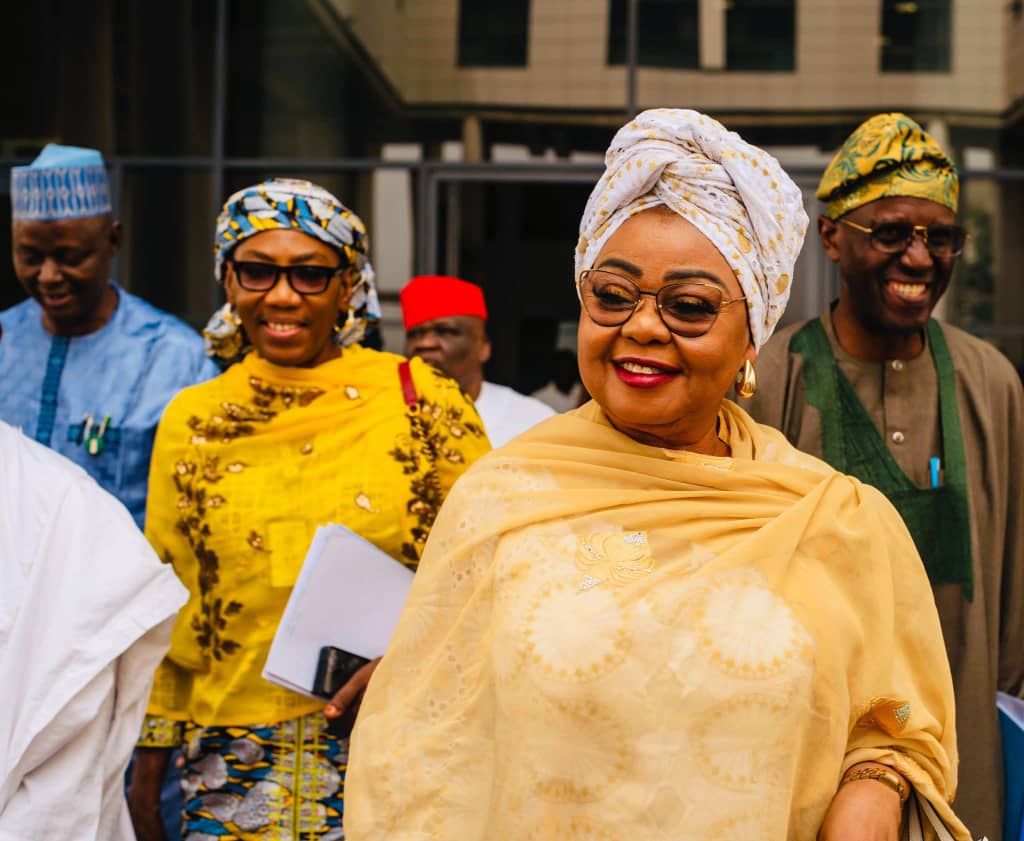
House Committee Seeks Stronger Financial Backing for Federal Character Commission
The Executive Chairman of the Federal Character Commission (FCC), Honorable Hulayat Motunrayo Omidiran, has reassured the commitment of her new leadership to reposition the Commission and strengthen enforcement of the federal character principle, despite prevailing funding challenges.
Hon. Omidiran made this known during the Commission’s budget defence before the House of Representatives Committee on Federal Character at the National Assembly on Friday, February 19, 2026.
The Executive Chairman opened up on inadequate funding has continued to constrain the Commission’s statutory activities, including nationwide monitoring, compliance audits and enforcement measures across Ministries, Departments and Agencies (MDAs).
“We are focused and determined to do the work that the Constitution and the President have entrusted us with,” Omidiran stated.
The FCC Boss, however, assured lawmakers that the Commission remains resolute in ensuring equity, fairness and balanced representation in line with its constitutional mandate.
“As a Commission, it is our responsibility to engage with relevant government parastatals and ministries to secure the necessary funding we require. We believe that with consultation and collaboration, it will be a successful venture for the Commission.”
Earlier, the Chairman of the House Committee on Federal Character, RT. Hon. Ahmed Idris Wase, expressed deep concern over what he described as near-zero budgetary allocation to the Commission, stressing that such financial inadequacies severely undermine its operational effectiveness.
The Plateau State lawmaker assured the Commission of the Committee’s firm legislative backing in advocating for improved funding and strengthening the Commission’s capacity to fully exercise its constitutional mandate.
“We cannot reasonably expect the Federal Character Commission to enforce compliance across Ministries, Departments, and Agencies while grappling with insufficient funding,” Hon. Wase remarked.
“If we are genuinely committed to fairness, equity, and national cohesion, then we must be deliberate in adequately funding the institution established to safeguard these principles.
“As a Committee, we shall work closely with the leadership of the Commission to ensure that its budgetary provisions reflect the magnitude of its mandate. The era of skeletal or token funding must give way to realistic and sustainable financial support,” he concluded.
The budget defence session concluded on a note of renewed collaboration between the House of Representatives and the Commission, reflecting a shared determination to strengthen institutional capacity, enhance accountability, and promote equitable representation within Nigeria’s public service.
SIGNED:
Ademola Lawrence
Spokesperson,
Federal Character Commission
February 20, 2026
-

 celebrity radar - gossips6 months ago
celebrity radar - gossips6 months agoWhy Babangida’s Hilltop Home Became Nigeria’s Political “Mecca”
-

 society6 months ago
society6 months agoPower is a Loan, Not a Possession: The Sacred Duty of Planting People
-

 society5 months ago
society5 months agoReligion: Africa’s Oldest Weapon of Enslavement and the Forgotten Truth
-

 news6 months ago
news6 months agoTHE APPOINTMENT OF WASIU AYINDE BY THE FEDERAL GOVERNMENT AS AN AMBASSADOR SOUNDS EMBARRASSING






